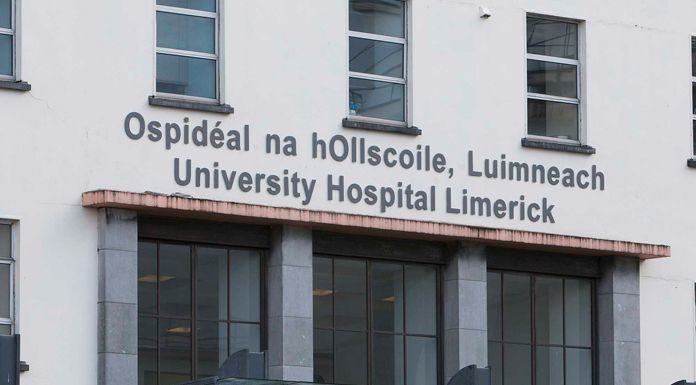The Chief Clinical Director of the UL Hospitals Group says he is ‘hopeful’ that the hospital system in this region will be able to cope with the latest surge in Covid-19 cases.
The majority of scheduled surgeries and out patient appointments have been cancelled at five of the six Midwest hospitals in response to the now record number of COVID patients in hospitals.
There are currently 73 patients being treated for Covid-19 across the Midwest hospital group, with 66 of those at University Hospital Limerick alone.
That’s the highest level recorded since the start of the pandemic.
Six of those patients are in intensive care.
It’s exacerbating pressure on an already strained system, which is at the same time is dealing with high volumes of patients attending the Emergency Department in Dooradoyle.
The majority of scheduled surgery and outpatients appointments across five hospitals, including UHL and Ennis General are being deferred and all affected patients are being contacted directly.
University Maternity Hospital Limerick is not affected by the cancellations.
The group’s Chief Clinical Director Professor Brian Lenehan says while not confident, he is hopeful that plans in place to deal with increased pressure will be sufficient.
HSE CEO Paul Reid said earlier this week that there is scope to boost intensive care capacity to 450 beds.
However, the former President of the Intensive Care Society says that’s not a scenario that staff want to be in.
Dr Catherine Motherway, who’s based at UHL, hopes that won’t be necessary.
Earlier, Paul Reid confirmed there are now 921 patients with COVID in Ireland’s hospitals. That surpasses levels seen during the first wave of the coronavirus.
Separate figures, meanwhile, show that UHL continues to be the most overcrowded facility in the country today.
66 people are waiting for a bed as of this morning according to the INMO – up from 54 yesterday.
That’s more than double the number of patients on trolleys there than any other hospital nationwide.









